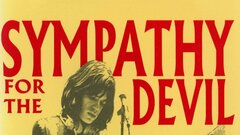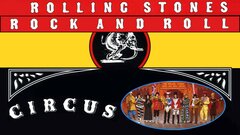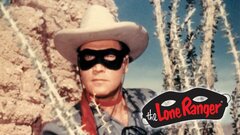If Mick Jagger and Keith Richards were the brains behind the Rolling Stones, and the late Brian Jones its soul, then the pulse of the legendary British rock group was clearly its drummer, Charlie Watts. From the year of the band's inception in 1963, through its rise to superstardom in the 1970s and well into the 21st century, Watts provided the steady but versatile beat for the band's biggest hits, including "Satisfaction," "Jumpin' Jack Flash," "Gimme Shelter" and dozens more.
Throughout the Rolling Stones' four-decade career, Watts retained an image of classy reserve, which often ran in contrast to the excesses of Jagger and Richards. However, both agreed that without Watts, the Rolling Stones could not exist, which cemented his position as one of rock's most eminent drummers.
Born Charles Robert Watts in London, England on June 2, 1941, he was the son of lorry driver Charles Watts and his wife, Lillian Eaves. He was, by all accounts, a traditional schoolboy, and showed an aptitude for art as well as cricket and football. But Watts had also developed a taste for jazz at the age of 10, and began performing along with records after receiving his first drum kit in 1955.
However, unlike many musicians, Watts never took lessons for his chosen instrument, nor did he actively pursue music as a career. It remained a hobby for him while he pursued a career in art. After attending the Harrow Art School, he worked as a graphic designer for an advertising agency, and actually turned down an offer to tour with Alexis Korner's Blues Incorporated, a popular band that featured established players among its rotating roster, including future Cream bandmates Eric Clapton, Jack Bruce and Ginger Baker. Two up-and-coming musicians - singer Mick Jagger and guitarist Brian Jones - also performed as part of Korner's musical consortium.
Watts continued to play occasionally with Korner and other groups while working at the advertising firm. In 1962, Jones approached him to join a group he had assembled with Jagger, guitarists Keith Richards and Dick Taylor, and pianist Ian Stewart called the Rollin' Stones. However, Watts resisted the offer until January of 1963, when he formally joined the band. At the time, he had no expectations for the band, which soon shed Taylor in favor of bassist Bill Wyman and added the missing "g" to their moniker.
However, 1964 saw them hit the Top Five on the British pop charts with a cover of Bobby Womack's "It's All Over Now." America fell for the group the following year with 1965's "Satisfaction," which cemented the Rolling Stones as one of the biggest music groups in the world and one of the few to nip at the Beatles heels.
Watts' contribution to the band was best described as maintaining its swing. Both Jagger and Richards went on record as saying that the group could not properly function without his drumming, which steadfastly maintained the beat and drive of the respective songs while adding small but noticeable flourishes in a jazz-like fashion. In interviews, Watts said that he anchored his playing around Richards' guitar while remaining an imperceptible amount of time behind the beat, which allowed him to emphasize a weightier, dance-oriented groove.
And despite his lack of formal training, he was able to follow them through numerous experiments with musical styles - from country stomps ("Country Honk" from Let It Bleed) to Latin-disco hybrids ("Miss You" from Some Girls) to flirtations with funk ("Doo Doo Doo Doo Doo (Heartbreaker)"), soul and even New Wave ("Undercover of the Night"). Through the band's tumultuous career, Watts maintained a cool, bemused reserve, letting Jagger and Richards serve as the band's mouthpieces while his music did the talking for him.
Watts also maintained his image off stage as well. While the band descended into drug-fueled bacchanalia in the 1970s, Watts steadfastly refused to take part in the chemical and sexual circus that swirled around them. He was a devoted husband to his wife, Shirley Ann Shepherd, whom he married in 1964, and a doting father to their daughter, Seraphina, who was born in 1968.
He cultivated interests in fashion, art and horse breeding, and contended with the rigors of touring by compiling sketches of every hotel room he stayed in, beginning in 1968. By avoiding the pitfalls of rock excess, Watts became the group's rock of stability, as well as the final word on most major decisions involving the band. So great was Jagger and Richards' respect for their drummer that when Bill Wyman left the band in 1994, they turned to Watts to select a replacement. Ever the jazz aficionado, Watts picked Darryl Jones, a much-respected sideman for Miles Davis, among other artists.
Watts also made significant contributions to the group's visual style. He contributed graphics to several early records, and conceived the group's show-stopping press conference for its 1975 world tour. Taking a cue from New Orleans jazz groups, Watts had the Stones perform their latest single, "Brown Sugar," on the back of a moving flatbed truck in the middle of Manhattan. Watts also contributed to the design of several stage designs for world tours, including the massive lotus that framed the 1975 Tour of the Americas, as well as the urbanized hybrids seen in the 1989-1990 Steel Wheels tour and the 2005-06 Bigger Bang tour.
Watts' outer calm was occasionally shattered during the Rolling Stones' four-decade career. Family problems in the 1980s pushed his casual drug and alcohol use to problematic levels, forcing Watts to take control of his life in 1986. And while Jagger and Richards' feuds were the stuff of rock legend, he occasionally clashed with his band mates, most notably in the mid-1980s, when an intoxicated Jagger called Watts' hotel room in search of "his drummer."
Watts reportedly dressed himself in a suit, went to Jagger's room and punched him in the face, adding, "You're my singer." In 2004, Watts underwent successful radiotherapy for throat cancer.
Though Watts' primary musical outlet was the Rolling Stones, he began to play with and form other side projects in the 1970s and 1980s. Rocket 88 featured Watts playing '40s-style boogie woogie with original Stones member Ian Stewart, his old bandleader Alexis Korner, and a rotating roster of top U.K. rock and jazz musicians. He later toured in the 1980s with a jazz big band before forming several smaller groups during the decade, including The Charlie Watts Quintet, which released several jazz albums in the early 1990s.
In 2000, he teamed with veteran studio player Jim Keltner to release an instrumental album with electronic influences, and then conceived the Charlie Watts Tentet, which recorded a live album at the legendary Ronnie Scott's club in London in 2004. In 1989, Watts was inducted into the Rock and Roll Hall of Fame along with the rest of the Stones. Modern Drummer magazine later inducted him into their Hall of Fame in 2006. In 2009, fans were alarmed to read a report issued by an Australian website that Watts had retired from the Rolling Stones, but the group's camp was quick to discount the rumor.




















































